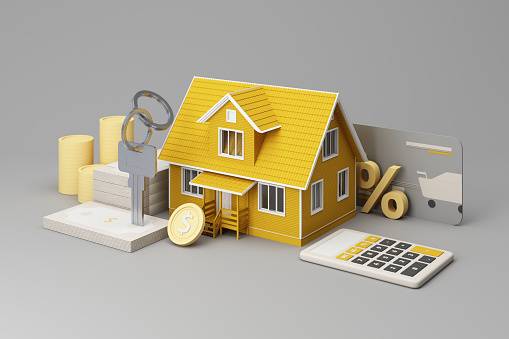
Essential facts about mortgage
A mortgage, at its most basic, is a debt taken out to finance the purchase of real estate. A mortgage, like any other loan, has parameters such as an interest rate and an amortisation (payment) schedule. Mortgages are secured by the collateral of the home itself. This means that the mortgage lender has the right to take back the home if the mortgage holder defaults on payments. It is important to understand the following ideas before applying for a mortgage. That will help you receive the best mortgage possible:
Term- During the term of your mortgage agreement, you are obligated to make monthly mortgage payments. Rental periods might be as short as six months or as long as five years.
Rate of interest- the cost of carrying a mortgage. A portion of each monthly mortgage payment goes toward reducing the loan’s principle balance, while the rest covers interest accrued.
Open or closed mortgage- How much leeway you have in determining when and how much of your mortgage payment you make each month determines whether your mortgage is open or closed. You’ll need an open mortgage if you ever want to modify the loan in any way, including renegotiation, refinancing, or repayment. A closed mortgage will limit your options. But the interest rate is usually lower on these types of loans.
Mortgage amortization- It is the time it will take to pay off your loan in full. For mortgages, the standard amortisation time offered by the country’s major lenders in Canada is from five to twenty-five years, with a maximum of thirty years available with a twenty percent down payment. In most cases, borrowers will need to wait until the end of many mortgage periods before making the final payment.
Fixed or variable mortgage- Mortgage interest can be either fixed (staying the same for the duration of the loan) or variable (changing periodically). Rates of interest on variable-rate loans can rise and fall in response to fluctuations in the market.is
How long will it take to pay off your mortgage
The length of your mortgage is different from the time it takes to pay it off. The length of time during which you make payments on your mortgage is known as its amortisation period.
With a 20% down payment, the standard amortisation length offered by most Canadian lenders is 25 years; with a larger down payment, this number can rise to 30 years. In general, the lower the amortisation term, the lower your interest payments will be over the life of your loan, but the larger your regular mortgage payments will be.
should I go for the highest possible amount?
For first-time buyers, it’s also vital to consider how much of a mortgage they can comfortably make each month. There are practical matters to think about in your house search regardless of the size of the loan you can afford.
First and foremost is the reality that variable interest rates will almost certainly increase in 2022 due to a likely rate hike by the Bank of Canada sometime in the first quarter, maybe in April. The uptrend in fixed rates is expected to continue.
Not only should you be aware of the growing rates, but you should also be aware of the fact that many experts advocate setting aside at least 10% of your gross pay for retirement (and some even propose as much as 30%). When borrowing money, it’s best not to borrow more than you can comfortably repay in a single payment.
Mortgage affordability calculators can be helpful if you’re not sure how much house you can afford. You should always double-check the results of these tools with a broker who is familiar with the nuances of your financial situation, as they are only meant to provide estimates.
How can I determine whether I need adaptability or stability?
The choice between a fixed or variable interest rate, a longer or shorter term, a shorter or longer amortisation period, and a larger or smaller mortgage balance all comes down to personal preference and tolerance for risk.
If you want to stay within your financial means and at the same time feel at ease, you need to be practical. And fortunately, you can rely on others to help you get the best mortgage for first-time buyers. A mortgage broker can help a first-time buyer get the best mortgage rate and lender for their situation by comparing products from numerous sources.



